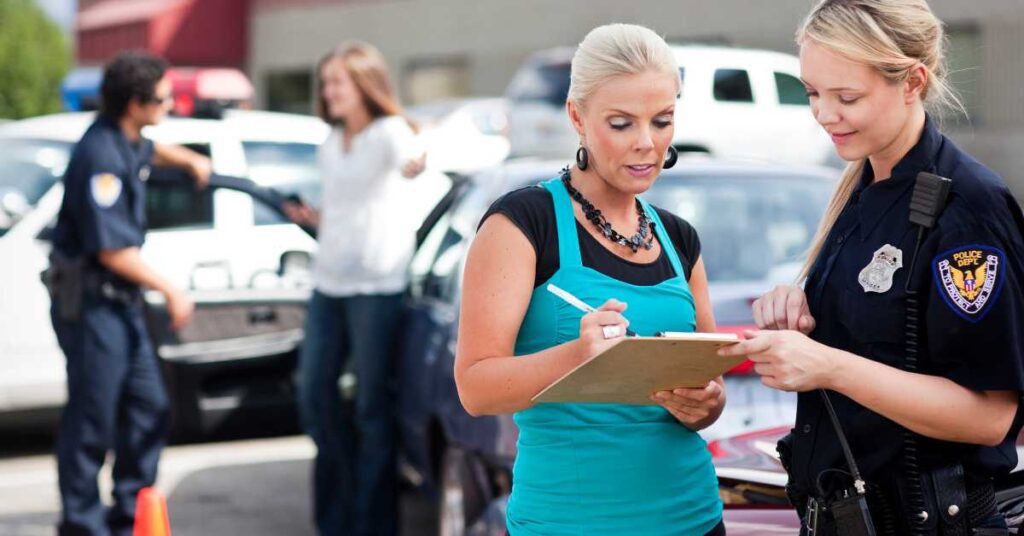Errors on a Car Accident Police Report: What Should You Do?

A police report is crucial when it comes to proving the at-fault driver’s negligence in a car accident. But what if the police report contains false information that paints you in a negative light?
You don’t have to simply accept the police officer version of events and move on. With the assistance of a car accident attorney, you can take several steps to correct errors on the police report.
What Types of Information Are on a Police Report?
After your car accident, a police officer likely came to the scene to help direct traffic around the crash, make sure everyone was okay, and create a police report. The police report contains details about the accident, including:
- The contact information for all parties involved, including the car accident victims, passengers, and any witnesses.
- The makes and models of all vehicles involved.
- A diagram showing the accident circumstances.
- A description of property damage and road debris.
The report may also contain information about who the police officer believes was responsible for the accident.
What To Do When the Police Report Contains Errors
So you’ve noticed an error with the police report — what next? The actions you take depend on the type of error, but your auto accident lawyer can help you approach the correction strategically.
Correcting Factual Errors
If the police officer got an indisputable detail wrong, such as the color of your car, the spelling of your name, or the location of the accident, you should be able to fix it pretty easily. Just contact the officer and alert them to the error, then provide evidence of the correction.
For example, if the officer misspelled your name, you can bring your driver’s license into their office (or email a copy) as evidence of the correct spelling.
Fixing Errors of Omission
The police officer may have left out some information that you deem important. For example, you may have relayed your car accident injuries to the officer, but they didn’t record them in the report.
Again, it’s a good idea to contact the officer directly to fix this omission. If you don’t feel comfortable talking to the officer, you can have your car accident attorney contact them instead.
Correcting Transcription Errors
The police report should contain as many accurate details about the accident as possible. If the officer mistakenly wrote “45 mph” on the police report instead of “35 mph,” for example, you want to correct the issue as soon as possible to ensure that the report accurately reflects the accident.
Transcription errors may just be typos, but you should contact the officer directly to correct them. Don’t delay; you want to ensure that the officer remembers the details you gave them at the scene and can recognize that they made a typo on the report rather than suspecting that you’re trying to change your story.
Disputing Subjective Information
While police officers should be as objective as possible in their reports, they often include some opinions as well. They may state that they believe you were partially at fault for the accident, while you disagree.
Disputing subjective information can be challenging because it’s your word against the officer’s. But you can at least ask the officer to include your version of events in the police report, then gather as much evidence as possible to support your side of the story.
Your car accident attorney can help you collect video footage, witness testimonies, photos, and other compelling evidence to support your car accident case.
Contact an Experienced Car Accident Lawyer for Help Correcting Mistakes in the Police Report
Do you need legal advice after a car accident? Call the attorneys at
Fadduol Cluff Hardy & Conaway P.C. Attorneys at FCHC Law are available to help you today at (432) 335-0399, so you may receive assistance from qualified personal injury lawyers.
